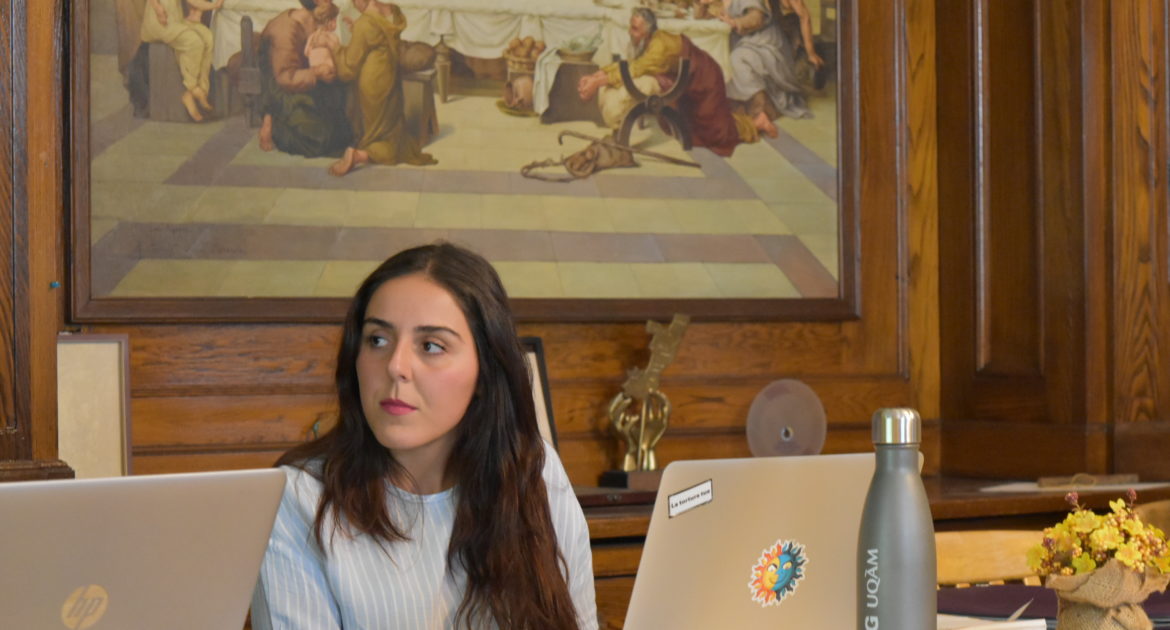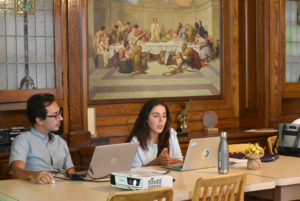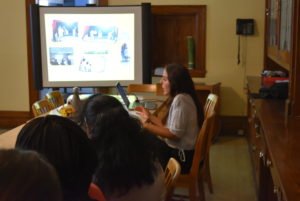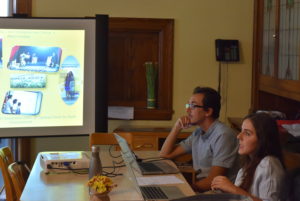
Gözde Erdogan was deployed to Tunisia as a voluntary legal advisor as part of the “Protection of Children, Women and Other Vulnerable Communities (PRODEF)” project, implemented by the International Bureau for Children’s Rights and Lawyers Without Borders Canada (CBSA), with financial support from the Government of Canada through World Affairs Canada.
Just returned to Montreal after the end of her term, Gözde took the time to talk about her experience as a volunteer cooperant with the IBCR staff on Wednesday, 14 August.
During her cooperation mandate, Gözde was deployed to assist two Tunisian associations. She was welcomed by two new IBCR partners: the Tunisian Forum for Youth Empowerment (TFYE), an association working to protect the rights of children and young people, and ADO+, an association that focuses on adolescents through an innovative approach that uses theatre art for theater and Both associations were founded in 2011 in a post-revolutionary context.

Gözde carried out several missions during her term of office, ranging from conducting workshops to writing new projects and establishing a network of contacts with other associations working for the protection of children. It has also developed a Code of Ethics and Good Practices for the said Tunisian organizations, in partnership with specialists in child rights. She proudly refers to the involvement of children and adolescents in the implementation of the Code in order to ensure their participation, the guiding principle of the Convention on the Rights of the Child.
One of the most significant moments of her mandate was the organization of workshops on children’s rights to raise awareness among adolescents. The latter were to create improvised theatrical scenes on practical cases related to children’s rights (e.g. child labour and sexual exploitation of children), the aim being to determine which rights were being violated, how to remedy the situation as a citizen, etc. In less than an hour and a half, the teenagers managed to put together a successful theatrical presentation. This allowed them not only to express themselves but also to start a discussion on this subject.
For future volunteers, Gözde advises preliminary research on the political and socio-cultural context of their country of assignment. She also explains that adapting to a new country is a continuous challenge and a lengthy process and strongly recommends taking part in activities outside work to change your mind and make new acquaintances.
To conclude her presentation, Gözde spoke of the progress that remains to be made in Tunisia with regard to the rights of the child. Although the country is considered to be at the forefront of the field due to the adoption of a Child Protection Code in 1995 and the involvement of civil society since 2011, the implementation of this Code remains a challenge today. There are child protection officers in the country’s 24 governorates, but a large part of the Tunisian population is not informed about child protection mechanisms. For example, under the Child Protection Code, every citizen and resident in Tunisia is required to report a situation that is harmful to a child to the Child Protection Officer. Unfortunately, this legal obligation is still too little known. Gözde also mentioned the high rate of violence and neglect towards minors that persists in Tunisia.
The development worker ended her presentation on a positive note by mentioning a real commitment within Tunisian civil society towards children and adolescents, whose participation is increasingly taken into consideration, which gives her hope for the future.







